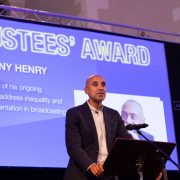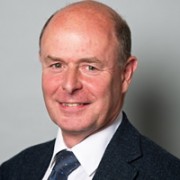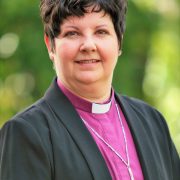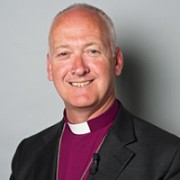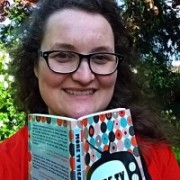Ethics of Journalism
/0 Comments/in Broadcast policy, Ethics, General, journalism, news and current affairs, Outreach, public service broadcasting, representation, Research, Uncategorized /by Salil TripathiIs Truth Dead?
/0 Comments/in Broadcast policy, Events, General, House of St Barnabas, journalism, Media Salons, news and current affairs, Outreach, Uncategorized /by Anna McNameeThe BBC has listened; now for action
/0 Comments/in BBC, Broadcast policy, Uncategorized /by sandford-masterRemembering Rabbi Lionel Blue
/0 Comments/in Uncategorized /by Anna McNameeIt was with great sadness that the Sandford St Martin Trustees learned of the death of Rabbi Lionel Blue in December last year. Over the last three decades, Lionel had secured a place in the hearts and minds of many people but particularly Radio 4’s ‘Today’ programme audience. His contributions to Thought For the Day were warm, thoughtful, thought-provoking and often guaranteed to put a smile on your face.
We’re now deep in the throes of planning the 2017 Sandford St Martin Awards – judges are carefully sifting through the entries, guest lists are being updated, trophies and certificates being ordered to celebrate some of the best religious broadcasting there’s been over the last year. Broadcasters like Lionel who in 2010 was given a Sandford St Martin Personal Award for his unique contribution to the genre. You can watch a video of Lionel speaking about the Award below.
Our condolences to his many friends and family. He will be missed.
How To Judge a Sandford Award Winner
/0 Comments/in General, Uncategorized /by Penelope SolomonSandford St Martin Award shortlisters and judges are chosen for their wide experience of both religion and the media. They include experienced producers, programme-makers, directors, journalists and critics from a variety of faith backgrounds. In 2016 the comedian and Radio TV critic, Penelope Solomon, was one of the those who was given the daunting task of shortlisting our radio entries. Over the past few years, radio has been the Awards most competitive category. This year more than 90 radio programmes were in the running for prizes. In her blog, Penelope reveals more about the process and some of the highlights for her.
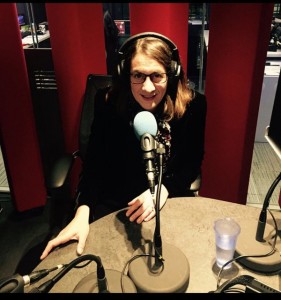
I WAS A SANFORD ST MARTIN AWARD SHORTLISTER
As a television critic, I like to select and compare programmes across different genres covering a range of topics. This helps to keep the viewing varied and interesting both for me and, hopefully, for my audience when I come to discuss the programmes live on air. For example I might watch a stand-up show like ‘Stewart Lee’s Comedy Vehicle’ and then contrast this with a documentary programme such as ‘Bedlam’ about mental illness in a psychiatric hospital in South London. (Some might argue that these two programmes are very closely linked, but that’s a subject for another blog!)
When I was invited to be on the shortlisting panel for the Sandford St Martin Awards, I was slightly daunted at first by the fact that I would be required to listen to a fair share of the almost eighty different radio programmes entered in the category and united by a common theme: religion, ethics and spirituality. Whilst I am interested in programmes which have a religious content, I thought the process might be a bit repetitive and dull. In truth, I didn’t really know what to expect. How delightfully surprised I was by the sheer range on offer from drama to documentary to live performances and church services. There was even a small selection of live Nativities!
Such was the diversity of voices, that contributions ranged from young Muslim women from Birmingham talking about wearing the hijab and fashion, to Jewish people ‘making Aliyah’ (i.e. emigrating to live in Israel) to an analysis of the Archbishop of Canterbury’s turbulent childhood. Questions around identity were a common theme in many programmes with different religious practices presented and issues affecting people from all walks of life, some who had faith and some with no faith. Some of the stories told were so gripping and evocative they brought tears to the eyes.
When a programme really works you can’t or indeed don’t want to stop listening. Strong resonant voices draw you into a carefully crafted story and somehow a connection is made which makes you want to keep on listening. During my listening I’d often find myself drawn in by programmes about topics I knew nothing about. When these stories were told well – through engaging contributors, a fresh approach and seamless editing – the result was extremely effective. I gained knowledge about different cultures and different ways of life and felt enriched and broadened by this new learning experience.
Music was a powerful and effective device used creatively in many of the programmes. Sometimes it was woven into the piece to break up or punctuate the narrative. At other times it was used to enhance meaning and emphasis within a story, to build up suspense and increase the tension. Stirring soundscapes were used to accompany chilling and harrowing stories. Occasionally music was over-used and became intrusive and distracted from the rest of the content, but this was rare. In some programmes the music and songs were so bold and stirring that I wanted to go out and buy the CD – if there had been one!) And then, there were other programmes which did not have any accompanying sound-track at all. It was interesting to note that some of these were equally as effective if not even more effective in engaging the listener. In these programmes it was the solitary voice and the spoken word which resonated and created an impact.
Several of the programmes explored current issues and contemporary themes such as same-sex marriages, religious fundamentalism, the radicalisation of young Muslims, freedom of speech or interfaith marriages and the fusion of eclectic family traditions. And the more I listened to these, the more I was surprised by how they stimulated my desire to discover more about other cultures, communities and religions and by how fascinating this learning was. I came away from the experience with a sense that I had touched upon some of the key issues that affect the lives of others and how important it is that this knowledge and information is shared.
In the end, my fellow shortlisters and I ended up with a long-list of fourteen excellent programmes which we then had to narrow down too a short-list of eight. We all had our favourites but after much analysis and discussion managed to agree in the end.
What strikes me on reflection is that there were hardly any comedy entries. Why is that? Is religion not funny? Are writers, producers or commissioners afraid to make jokes about Faith? Perhaps this is something for programme-makers and potential entrants to think about for next year.
You can read a full list of the programmes shortlisted for a 2016 Sandford St Martin Radio Award here.
Penelope is a Comedian and TV Critic for BBC Radio 4 (‘World Tonight’, ‘Today Programme’) and BBC Radio London.
As a performer credits include ‘Goodnight Sweetheart’ (BBC), ‘Fist of Fun’ (BBC), Sony Nominated ‘King of the Road’ (BBC Radio 2) and ‘Redeeming Brian’ by legendary sitcom writer David Nobbs (BBC Radio 2). She created and co-wrote ‘Tower of Bagel’ (Soho Theatre, Royal Festival Hall). Penelope has also performed live at: Theatre Royal Winchester, Royal Exchange Theatre, Manchester, Salisbury Playhouse, Bristol Old Vic and The Hackney Empire.
Penelope will preview her new live solo show at LEICESTER SQUARE THEATRE
on Saturday 16 July at 20.30
before heading to THE STAND COMEDY CLUB part of the EDINBURGH FRINGE 2016
You can find out more about Penelope and her work on her website: www.penelopesolomon.com
or by following her on Twitter: @aHackneyMum
More TV Vicar? – well yes, as it happens!
/0 Comments/in General, Uncategorized /by Bryony TaylorIn October 2015 Bryony Taylor, a curate from Durham and self-confessed TV addict, participated in a panel discussion produced by the Trust for the annual Church and Media Conference. The session was called “More TV Vicar?” … Um, yes: we did shamelessly pilfer the title of Bryony’s excellent book exploring television depictions of Christians in all their – not always so obvious – glory. And now we’ve twisted her arm and gotten her to write a blog for our website too. Thank you Bryony!
Earlier this year DLT published my book entitled More TV Vicar? which charts the portrayal of Christians (and especially vicars) on British television for the past 30 years. I was delighted to be invited to be part of a discussion panel at the Church and Media Conference 2015 with James Cary, comedy writer (who I interviewed in my book), Daisy Coulam (writer for ITV’s Grantchester) and very excitingly, Frank Williams – the vicar from Dad’s Army!
We had a wide ranging discussion including some TV clips with famous vicar characters. One theme we discussed was authenticity – having two screenwriters on the panel helped us to note that character and plot are essential – these things come first, not what religion the character is supposed to be. This is something I explore in my book – many Christians expect too much of ‘Christian’ characters on television – they are not there as a great advertisement for the faith – they are characters in a story and they are there as part of an entertainment strategy, not a mission strategy! Daisy spoke of the importance of showing the human side to the Rev’d Sidney Chambers in Grantchester – that he has feelings too – he is a fully rounded character. This was the same with the Padre Mary character from James Cary’s Bluestone 42, she is depicted as flawed and weak, but is not a caricature. We are beginning to see on our televisions more rounded portrayals of vicar characters.
Frank Williams spoke about his own character, Rev’d Timothy Farthing, and that even though his character was depicting a cleric from the 1940s it was not a particularly sensitive portrayal. Rev’d Timothy is not particularly nice – which is part of the humour that comes across in Dad’s Army. Having said that his vicar character was very much ‘of its time’ and therefore familiar to people. Being a church goer himself (and a member of General Synod) meant that he could lend the character an air of authenticity. Frank went on to say that the feeling now is that people simply aren’t interested in faith or religion. The days of people being able to ‘get’ the ‘blessed are the cheesemakers’ joke from Monty Python’s Life of Brian are long gone. Dad’s Army, broadcast in the 70s and 80s was put out at a time when people knew what to expect of a vicar character – they all knew one in their own town or village. This societal shift could be perceived as being a bit depressing but I would challenge that.
People who know me well know that I am the eternal optimist – my husband says that my glass isn’t half full, I just think ‘ooh, I’ve got a glass!’ And so when my book came out I said in a number of interviews that I thought that we would see more ‘vicar’ characters on our televisions over the next few years. Little did I realise that this would come true very quickly – Grantchester is currently filming its second series, ITV just showed a flagship 3-part drama, Midwinter of the Spirit with a woman priest in the starring role and Sky 1 brought out comedy drama You, me and the apocalypse featuring Rob Lowe playing a swearing, smoking priest in the Vatican alongside an Italian nun. This is all in the 6 months since the book was published (maybe I need to get started on volume 2?) Why all this sudden interest?
Let’s take the character of the curate from ITV’s award winning crime drama Broadchurch. There is a scene at the end of the drama in which the curate (who is a suspect in the murder case at one point) organises a powerful act of remembrance on the beach for the murdered child. This is the climax of the series and illustrates the truth that:
‘The church is still a place where people put the emotions that won’t go anywhere else.’ – Rowan Williams quoting a former student[i].
Williams goes on to say, in the same speech:
“I believe we are living in a society which is uncomfortably haunted by the memory of religion and doesn’t quite know what to do with it, and I believe we are living in a society which is religiously plural and confused but not therefore necessarily hostile.”[ii]
The memory of religion lingers in British society. Occasionally the remembered faith re-enters the public sphere – notably on Remembrance Sunday but also events such as the Queen’s Jubilee and the Royal Wedding or whenever a crisis hits a town. Slowly the church seems to be regaining its permission to be there, legitimately to have something to say.
This idea of religion (for that, read Church of England in this instance) ‘haunting’ comes across in a curious comment in a recent report on the religious output of the BBC:
“Though both Songs of Praise on BBC One and Sunday Worship on Radio 4 have been a feature of the schedules for quite literally a lifetime, it always seems slightly surprising when the pattern of family viewing on TV, and news and magazine programmes on radio, are interrupted by a religious service. It feels at the same time to be slightly anachronistic, and yet strangely reassuring.” – Stuart Prebble (my emphasis)[iii]
It is not altogether different from the way people feel about the Shipping Forecast on Radio 4:
“The Shipping Forecast remained on air for no reason other than it is still wanted by many thousands of people who had no logical purpose in listening to it – other than the most basic purpose of all, of course, which was to make life a little bit richer in some intangible way.”[iv]
The same could perhaps be said of the church – and especially the Church of England. People still want it, they still want to see it on their televisions, they just don’t quite know why.
Christendom has lost its place and the church (especially the Established Church) is losing its footing but this could be an opportunity for creativity. Pope Benedict said that in our current times Christians need to be living as a ‘creative minority’. Green and Robinson develop this idea in their book Metavista:
“In times of liminality, such as the one that the West is presently passing through, it is more important to live as creative minorities than to live either as coercive minorities or as ineffective majorities.”[v]
We are still seeing Christian characters on our televisions and indeed the more recent of these have been well-rounded and realistic rather than stereotypes or caricatures. I think we will only see more portrayals of Christians on television, not less. People are curious again about what drives people of faith: it seems that television producers are picking up on this. That can only be a good thing.
[i] Rowan Williams, ‘Faith in the public square’, Lecture at Leicester Cathedral, 22 March 2009
[ii] Ibid.
[iii] Stuart Prebble, ‘A BBC Trust Review of the Breadth of Opinion Reflected in the BBC’s Output’, BBC Trust, July 2013
[iv] David Hendy, Life on air: a history of Radio Four (Oxford: Oxford University Press, 2007)
[v] Greene, C. & Robinson, M., Metavista: Bible, Church and Mission in an Age of Imagination (Milton Keynes: Authentic, 2008), p214.
Find out more about Bryony and her book here.
And there’s more about the Church and Media Network who hosted the “More TV Vicar?” session here.
CONTACT US
Sandford St Martin Trust
Church House
Great Smith Street
London
SW1P 3AZ
Email: info@sandfordawards.org.uk
Tel: 07749875477
Recent blog posts
- Shared language for the soul June 20, 2024
- Film and TV Charity survey May 31, 2024
- Faith in the Future April 2, 2024
JOIN OUR COMMUNITY
At the Sandford St Martin Trust we’re interested in how religion and belief are portrayed in the broadcast media. We believe that faith – whether you have it or not – plays a complex role in human experience and that a better understanding of what people believe can support stronger secular communities. Think that sounds interesting? Why not sign up for our newsletter and join us at one of our forthcoming events aimed at stimulating and contributing to the debate around what is good religious content.
We look forward to meeting you!


